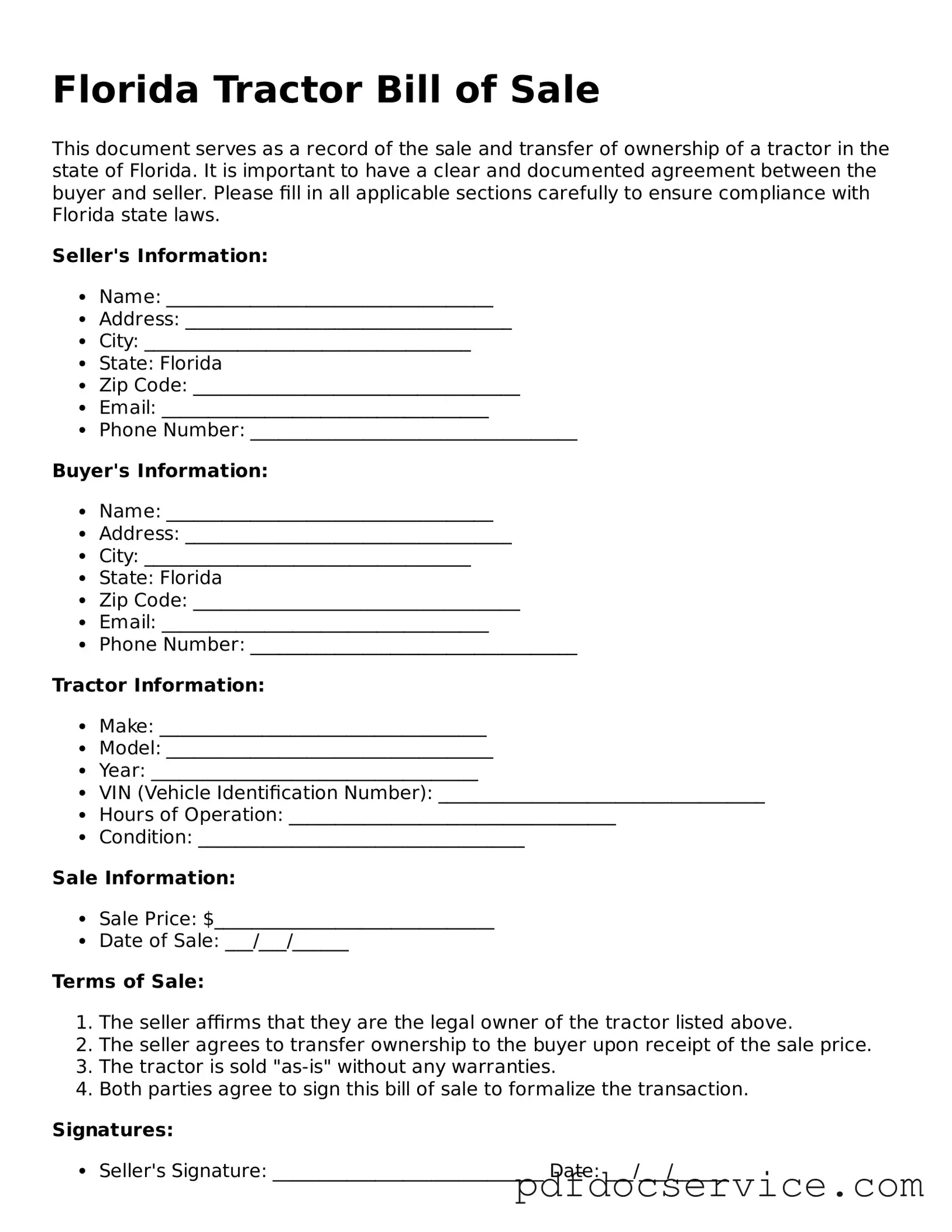Printable Tractor Bill of Sale Template for Florida
The Florida Tractor Bill of Sale form is a legal document used to record the sale and transfer of ownership of a tractor in the state of Florida. This form outlines important details such as the buyer, seller, and tractor specifications. Having a properly filled-out bill of sale can protect both parties and ensure a smooth transaction.
Open Tractor Bill of Sale Editor

Printable Tractor Bill of Sale Template for Florida
Open Tractor Bill of Sale Editor

Open Tractor Bill of Sale Editor
or
Get Tractor Bill of Sale PDF
Finish the form now and be done
Finish Tractor Bill of Sale online using simple edit, save, and download steps.